

Durham, North Carolina
2014 RWJF Culture of Health Prize Winner
The Durham Way
Once the heart of America’s tobacco and textile production, Durham County, N.C., is now home to burgeoning biotechnology and medical sectors. Unfortunately for many residents of the “City of Medicine,” the changing landscape has not translated to better health outcomes. For decades, Durham County has struggled to overcome both racial and socioeconomic inequities and the community continues to face high rates of obesity, heart disease, diabetes, sexually transmitted diseases, increasing unemployment, high poverty and low high school graduation rates.
Despite these challenges, the community has a rich history and incredible modern assets to draw upon in its transformation. Today, Durham County leaders, health care partners and residents are responding as one, and are forging a new approach to prosperity and equity known as “The Durham Way.”
Community-Led Effort
Since 2004, the Partnership for a Healthy Durham has worked to connect the world-class medical resources in the community with the residents who need them the most.
The Partnership now has over 500 members, including government agencies, workers from many settings and community members representing a wide range of interests. The Partnership, staffed by a fulltime coordinator from the Durham County Department of Public Health, is a convening group for conversations and action around the physical, mental and social health and well-being of Durham's residents. In 2012, it decided to begin tackling issues of poverty and education based on input from the community.
An Emerging Culture of Health
 Through Project Access, more than 4,000 patients get specialty care from medical professionals who volunteer their time at a network of clinics.
Through Project Access, more than 4,000 patients get specialty care from medical professionals who volunteer their time at a network of clinics.
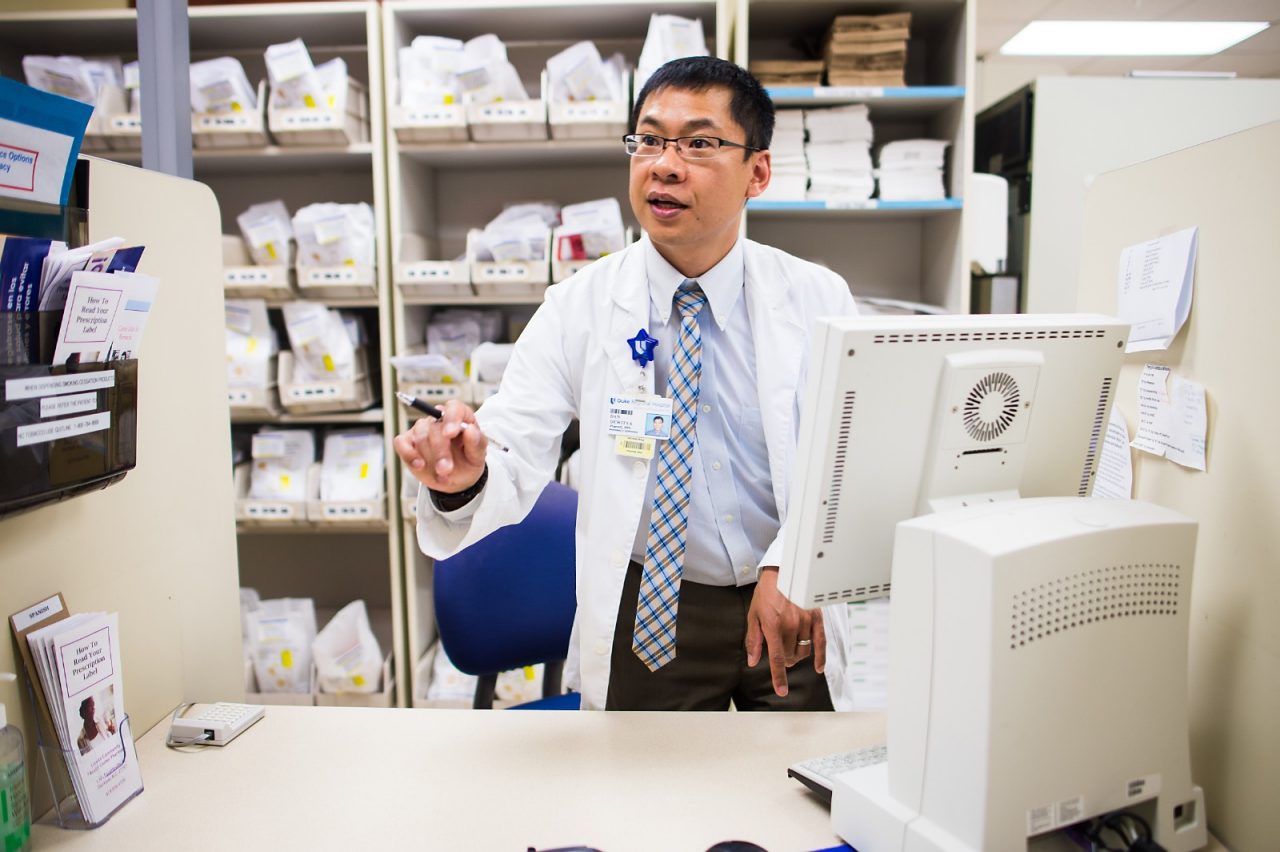 The Partnership for a Healthy Durham has worked to connect the world-class medical resources in the community with the residents who need them the most.
The Partnership for a Healthy Durham has worked to connect the world-class medical resources in the community with the residents who need them the most.
“We’re all in this together,” said Gayle Harris, director of the Durham County Department of Public Health. “That’s what I like about Durham. If there’s a problem, people come together, voice their opinions and work toward a solution.”
The Partnership has also joined forces with two leading community groups—Durham Congregations, Associations, and Neighborhoods, and the Latino Community Credit Union—and the community’s two leading medical facilities—Duke University Health System and Lincoln Community Health Center—to improve access to specialty medical services for the low-income, uninsured population in Durham County, making sure everyone in the community could benefit from the world-class research institutions and high-quality medical care that already existed in the county. Through a program called Project Access of Durham County, more than 700 clinicians have volunteered their time to serve more 4,340 patients through a network of clinics and private providers, laboratories, pharmacies and hospitals over the past four years. Durham County Government provides nearly $350,000 each year to the program’s infrastructure and to date, value of the donated medical care to Project Access is calculated at about $14 million.
Project Access serves patients receiving primary care at Lincoln Community Health Center, a federally qualified health center that serves about 40,000 individuals, 80 percent of whom are uninsured. “The role that Lincoln plays cannot be overstated. Our community has become a community that knows how to partner, so not only does Lincoln offer services within the walls of the building, they have nine other locations in the community,” said Harris.
The largest employer in Durham County, Duke University and Health System, is also a major stakeholder and partner in the overall wellness efforts. Leaders within the Duke University Health System are actively involved with the Partnership for a Healthy Durham and have been integrally involved in launching and supporting school health clinics and the Durham County Department of Public Health’s Tooth Ferry mobile dental clinic, which travels to local schools to provide dental care.
Beyond Access to Care to a Healthy Environment
“Improving the health of the community is not just about access to care, it’s about having a healthy environment,” said Harris.
The Durham Bicycle and Pedestrian Advisory Commission plays a critical role in the county’s Comprehensive Bike Transportation and Pedestrian Plans and participates in the review of site plans to ensure that pedestrian and bicycle amenities are included in new developments. Their efforts have helped to create 32 miles of dedicated bike lanes in Durham County. Based on community health assessment results demonstrating that many residents prefer to exercise within their neighborhood, two marked “Healthy Mile Trails” have been created to provide exercise opportunities to underserved communities and more are in progress.
Providing these opportunities for exercise also helps create strong social bonds across the community. Again, focused in the county’s most historically under-served neighborhoods, Bull City Play Streets events are literally opening the streets to increase physical activity and social connectedness. The project was born through many community partners including the Partnership for a Healthy Durham, Clean Energy Durham, Triangle Transit and Durham CAN. The Partnership for a Healthy Durham later wrote a grant to support the City in managing the events along with support from County staff. Play Streets use community volunteers to provide activities and healthy food during weekend festivals, linking residents to running, biking, badminton, Zumba and other new forms of healthy activity.
Community leaders are also focusing on expanding access to healthy foods. The community’s two farmers’ markets accept EBT cards from the SNAP program, and Durham Public Schools converted an empty plot of more than 30 acres of land into the Farm Hub — a hands-on learning environment where students can grow and harvest healthy food, hike, bike and explore nature in a directed educational environment. A “Veggie Van” works with churches, childcare centers, community organizations and other nonprofits to deliver boxes of fresh, locally-grown fruits and vegetables to people who have limited access to these products.
“These programs are an opportunity to give people more choice, more access and in turn create healthier options,” said Harris.
Durham County’s most ambitious achievement in recent years has been the passage of a Board of Health Smoking Rule that limits smoking in many outdoor areas. In a region where tobacco sales were once the engine of the local economy, the new rule prohibits outdoor smoking on city and county property and abutting sidewalks and bus stops. It has been called one of the most progressive rules in the Southeast United States.
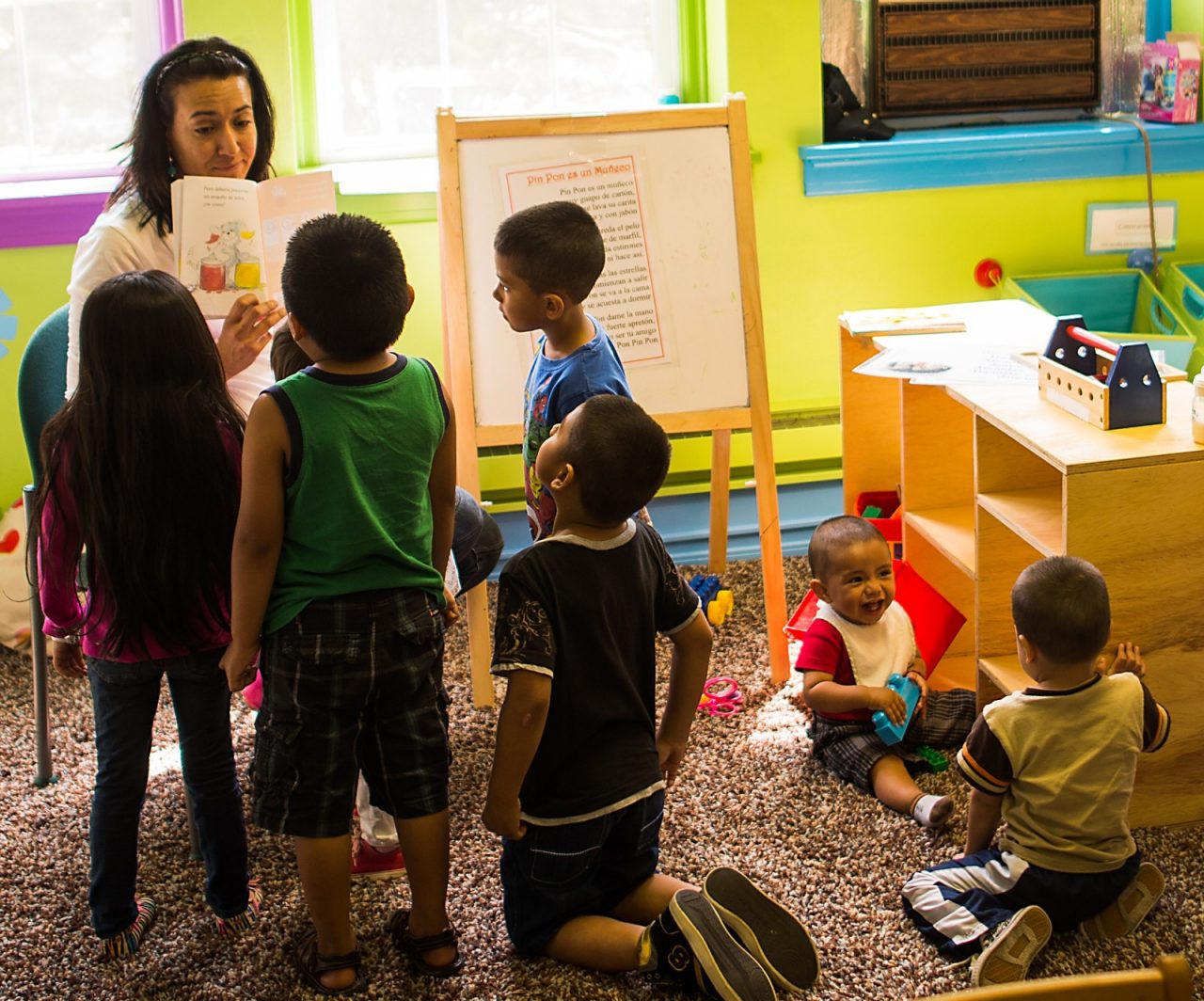 East Durham Children’s Initiative is designed to put children on a path to success from a very young age.
East Durham Children’s Initiative is designed to put children on a path to success from a very young age.
 Durham gives its community’s children the opportunity to get healthy while having fun.
Durham gives its community’s children the opportunity to get healthy while having fun.
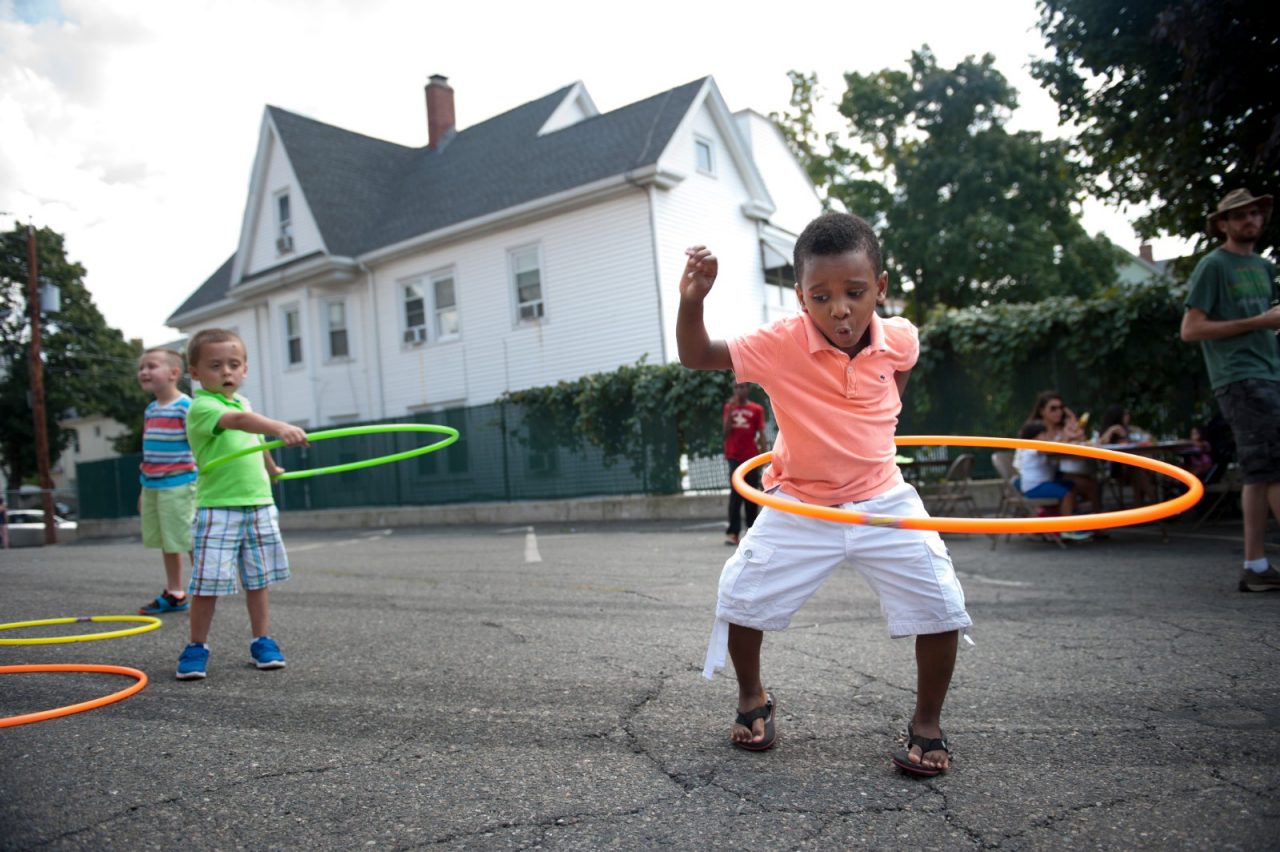
The Culture of Health Prize
The Prize honors and elevates U.S. communities working at the forefront of advancing health, opportunity, and equity for all.
Reducing Unemployment and Improving Education
Durham is home to a thriving economy and strong employer base, but a lot of residents are not trained for the high-skilled jobs that are available.
East Durham Children’s Initiative (EDCI) is designed to put children on a path to success from a very young age. Modeled after the Harlem Children’s Zone, EDCI is providing home-based parent support to families living in the zone and has helped to raise test scores of elementary school children in the program, particularly at Y.E. Smith Elementary School—one of the lowest performing schools in Durham Public Schools.
“What you see today is a dramatic turnaround in what Y.E. Smith was not too long ago. Now, you not only have engaged, excited children learning, but you also have the parents of those children area equally excited and engaged,” said David Reese, president and CEO of EDCI.
The county has seen a steady improvement in high school graduation rates over the past five years—now at 80 percent, equipping students with the education and self-efficacy needed for careers and higher education opportunities post high school. Located in the same community as EDCI, Holton Career and Resource Center houses a virtual high school with onsite mentoring, a performance center and a career center that exposes students to careers ranging from cosmetology to computer engineering, reinforcing those opportunities for life-long success and good health.
Education and public sector leaders, business CEOs and community advocates are also participating in the Made in Durham Task Force to create a pipeline of education and training opportunities for local high school students to gain employment in Durham’s thriving economy.
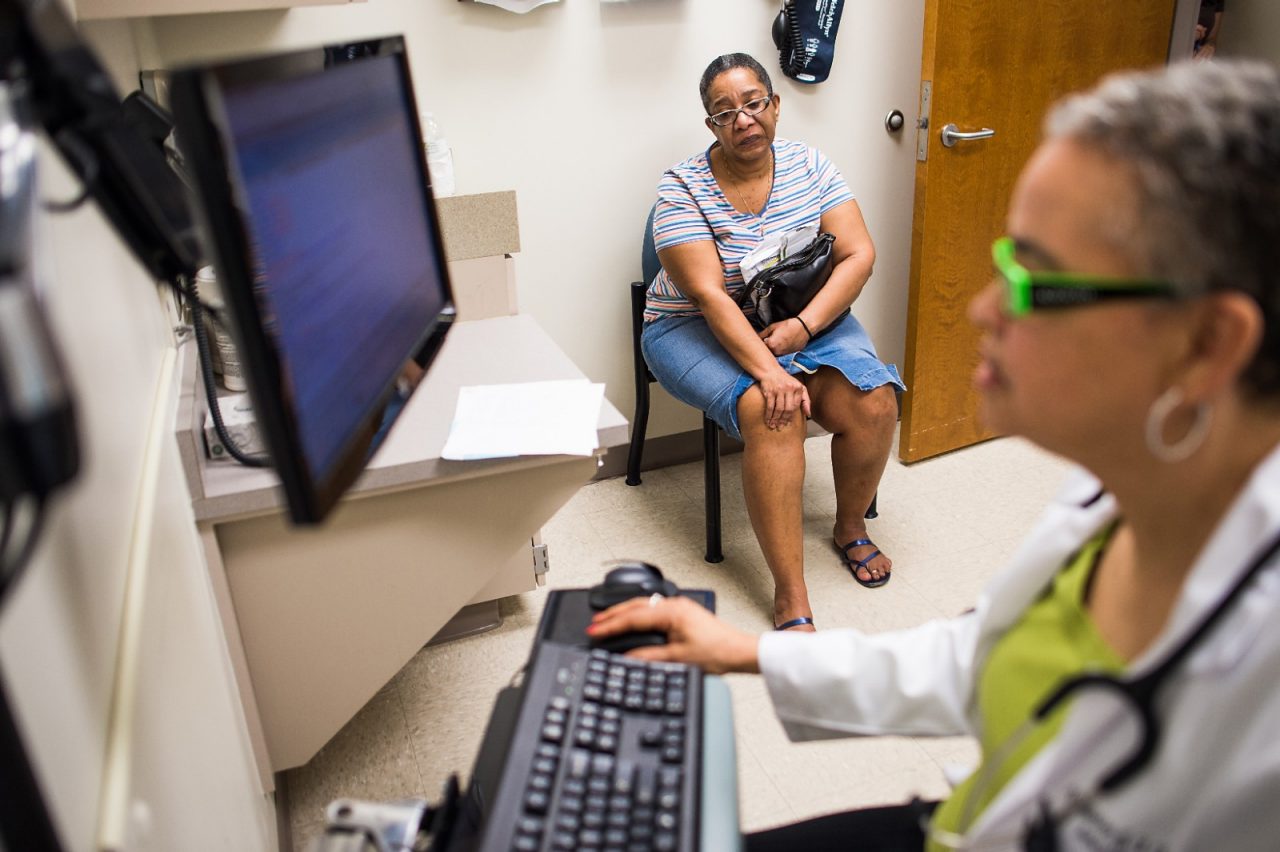 Lincoln Community Health Center, a federally qualified health center that serves about 40,000 individuals, 80 percent of whom are uninsured.
Lincoln Community Health Center, a federally qualified health center that serves about 40,000 individuals, 80 percent of whom are uninsured.
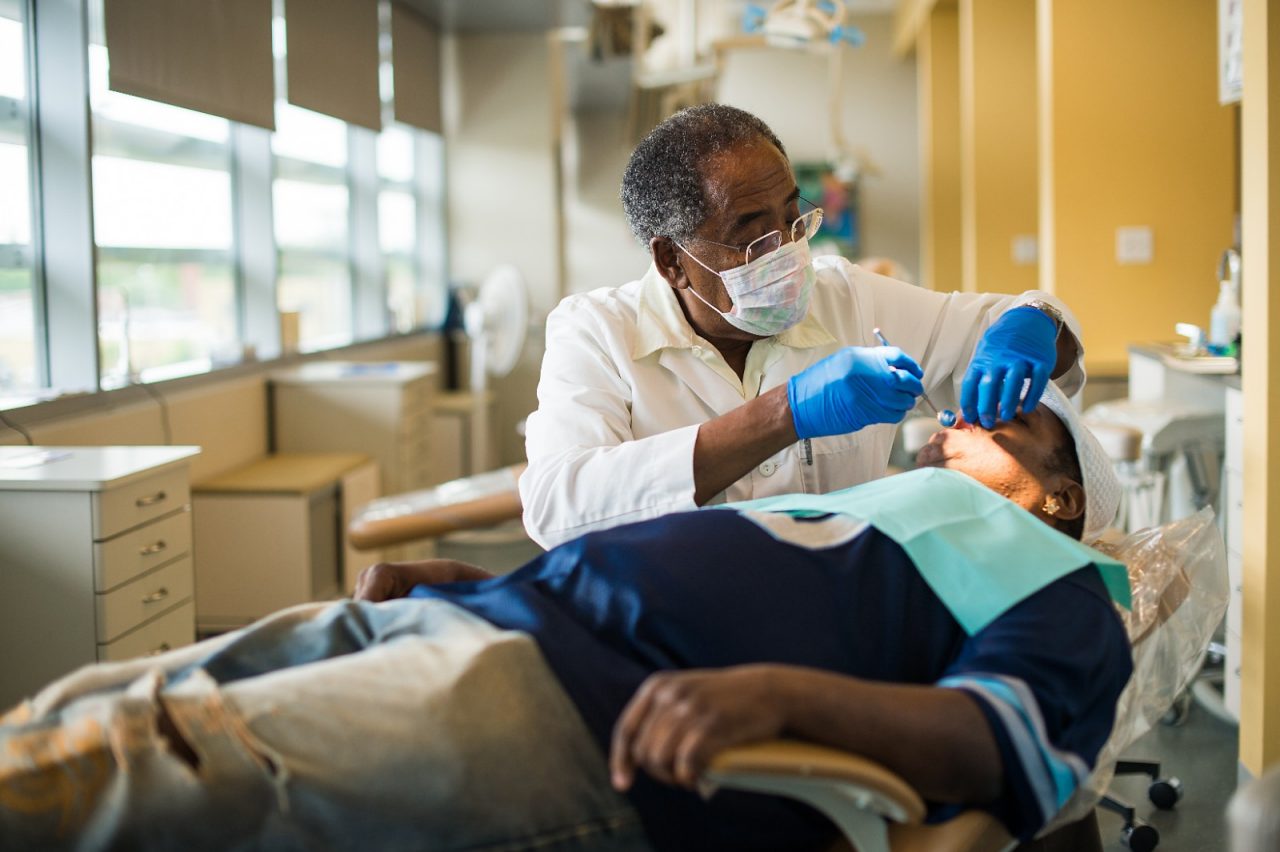 Durham is working to connect its esteemed medical sectors with a community in need.
Durham is working to connect its esteemed medical sectors with a community in need.
Working for the Greater Good
From increasing access to specialty medical care to improving educational outcomes, Durham’s culture of health is built upon a collaborative effort driven by all aspects of the community. The efforts are paying off—in 2013, County Health Rankings data show that the teen birth rate, preventable hospital stays and the adult smoking rate have declined for each of the past four years. Finally, fewer lives are cut short by premature death.
“Bringing people together is not always easy, and voices have to be heard whether it’s of your opinion or not,” said Harris. “I heard once that true partnerships mean that people come together, they put their thoughts on the table and then they take their hands off. They allow people to work through things until they morph into something for the greater good.”